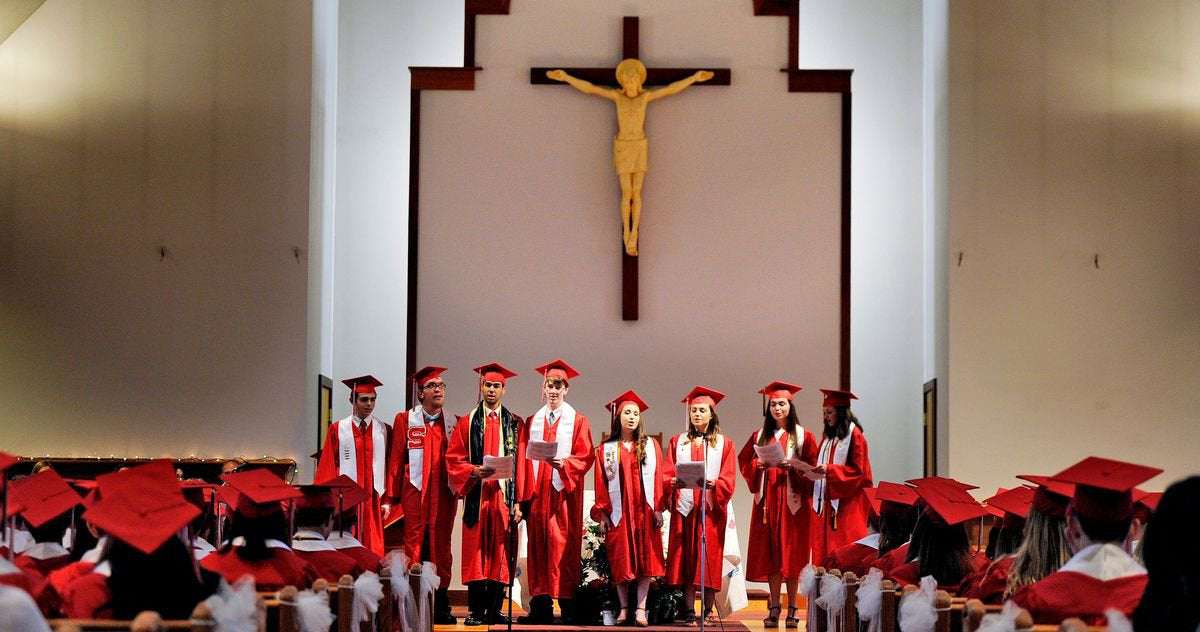Photo: Patrick Ouellette/Portland Portland Press Herald via Getty Images
The Supreme Court on Wednesday heard a case involving just 4,800 students in rural Maine. But because of the way the Court seems certain to rule, the case will affect everyone in America. The reason is a single word: discrimination.
On its face, the case, Carson v. Makin is an outlier. Maine has a unique system for students in far-flung rural areas: If there’s no public school available, then the state will pay around $11,000 to families toward private-school tuition, so long as the private school is not religious in nature. A consortium of right-wing organizations sued the state on behalf of two families who wanted to send their children to religious schools on the public dime. They argued that Maine’s policy amounts to anti-religious discrimination, a violation of the First Amendment’s Free Exercise Clause. And based on today’s oral arguments, they will win.
This result would have been unthinkable a decade ago. Until quite recently, state funding of religious schools was understood to be unconstitutional. Then, over time, it became permissible in the context of school-choice programs. Then, in 2020, in the case of Espinoza v. Montana Department of Revenue, it became mandatory in such programs, since, the Court held, if the program included secular private schools, it had to include religious ones.
And now it looks as though it will be mandatory even for public-school-replacement programs like Maine’s, even if the schools in question require students to attend chapel, discriminate against LGBTQ students (or bar them from attending), teach religious dogma, and present all subjects (such as evolution) from a religious point of view — as the schools in the Maine case do.
Justices Clarence Thomas, Samuel Alito, Neil Gorsuch, Brett Kavanaugh, and Amy Coney Barrett made it clear in their comments that not only is it constitutional for taxpayers to subsidize this religious education, but it is unconstitutional not to do so if a similar benefit is available to students at secular private schools. (True to his newly irrelevant status on the Court, Chief Justice John Roberts seemed eager to find a compromise, but the five justices to his right did not.)
The hinge of the case is “discrimination.” At one point, Justice Kavanaugh said that “discrimination against all religions, as opposed to secular, is a kind of discrimination that this Court has said is odious to the Constitution.” But wait, Deputy Solicitor General Malcolm Stewart replied for the Biden administration, “the question is whether to decline to fund religious instruction is discrimination.”
Nearly every conservative justice said that it is. At a later point in the argument, for example, Justice Kavanaugh said the religious parents “are seeking equal treatment, not special treatment; ‘Treat me the same as the secular parent next door.’”
“You’re saying equal,” Stewart replied, “but they’re seeking a benefit different from the one Maine is willing to provide. Maine is willing to provide a rough analog to a public-school education. It’s not willing to provide inculcation in religion.”
In fact, Carson is the latest in a long series of cases that have reversed the previous understanding of discrimination.
In the 2014 Hobby Lobby case, for example, a family-owned corporation sought to discriminate against women by excluding contraception from their health-insurance plans on religious grounds. But the Court found that, in fact, it was Hobby Lobby that was being discriminated against — by not being allowed to discriminate. Similar cases followed. In Masterpiece Cakeshop (2018), the Court held that Colorado discriminated against a religious baker by not letting him discriminate against LGBTQ people, or at least not taking his religious claims seriously enough. And in Fulton v. City of Philadelphia (2021), the Court held that Philadelphia discriminated against a Catholic foster-care agency by not letting it discriminate against gay parents. Notice a pattern?
Now, in Carson, the Court is poised to say that Maine is discriminating against religious parents (or schools) by not directing taxpayer money to schools, which, themselves, may discriminate against others — including LGBTQ people, who are barred from admission or employment by the two schools at issue, and members of other religions. At one of the schools in question, a listed objective of a social-studies class is to “refute the teachings of the Islamic religion with the truth of God’s word.” But, say the Court’s religious conservatives, it would be discrimination for taxpayers not to pay for that.
For this Court, nothing — not a woman’s right to access health insurance, not a queer person’s right to be admitted to school, and not Maine’s right to not fund sectarian indoctrination — is more important than the right of self-professed religious people to practice their religion as they see fit and, if necessary, get paid by the government to do so.

wulfpacker1 on December 8th, 2021 at 23:52 UTC »
Let's see how they feel about paying for Muslim schools.
solstargazer on December 8th, 2021 at 23:44 UTC »
Then maybe they should start paying taxes
ianrl337 on December 8th, 2021 at 23:37 UTC »
Well if it gets through, who wants to start the school of Satan and get that sweet government money?